How does the Client Portal work?
With LSA’s secure online Client Portal, you can submit documents for translation 24/7/365. LSA’s Client Portal also allows you to approve estimates, monitor your projects, and retrieve your translated documents online. Your Client Services Specialist, Account Manager, or Project Manager can set up an account for you.
What is the difference between interpretation and translation?
Although both practices share the common goal of taking information that is available in one language and converting it to another, they are two separate processes. Interpretation refers to listening to something spoken and interpreting it orally into the target language. Translation involves taking a written text and translating it in writing into the target language.
How long will it take to translate my documents?
Processing time for translation depends on a variety of factors, including the number of words in the document, the file type, the rarity of the language(s) requested, and the type of translation being performed. To speed up the process and reduce your cost, please provide editable native files, including all images, fonts, and instructions for handling, if applicable. If your project is urgent, we proudly offer rush services for an additional fee.
How many languages do you provide?
We offer professional translation and localization services for any standard world language; that is, any language having an alphabet and agreed upon grammar and spelling conventions. Conversion to Braille is also available for English documents.
What if I’m unsure of the language of the source document?
Our Project Managers are trained to identify languages for our clients. Simply let your Project Manager know that you are not sure of the language, and he/she will be able to assist you.
May I request a particular translator?
We match translators to a particular project based on the following factors: native language, experience, education, and expertise in the subject area. Often, clients will be matched with the same translator(s) to maintain consistency.
What if I have a question about a project?
For all translation questions, please contact LSA’s Client Services department at 866.221.1301 or on the Web. You may also contact your Account Manager, Project Manager, or the Translation Division Manager if you have a question about a particular project. To view the current status of your project, please log in to the Client Portal.
Where do I send requests for translation?
If you are a new client, please send your request for translation to our Sales department at 800.305.9673 X55305 or on the Web. If you are an existing client, you can upload your file(s) via the Client Portal or e-mail the document to your Sales Account Manager. Upon receiving your first request, our Translation Division Manager will assign the project to a dedicated Project Manager. Please include your contact information, the language(s) requested, and any special instructions.
How can I pay for my translation?
If you are a new client, an LSA Sales Manager will be happy to set up an account for you. We offer several payment options for services, including monthly payments (based on service agreement), credit line payments, purchase order payments, and credit card payments for smaller projects.
What type of documents are you equipped to translate?
We can handle almost any type of source file, from handwritten documents to HTML. Below is a list of some of the most common file types we typically work with. If your source file type is not listed below, please contact your Project Manager for confirmation.
- Microsoft Word, Excel, PowerPoint, and Publisher
- Adobe InDesign, PageMaker, Photoshop, Illustrator, Flash, and Acrobat PDF
- Website, Database, and Resource Files
- SCORM Packages
- QuarkXPress
- HTML
- XML
- AutoCAD
What levels of translation do you offer?
We have a combination of different translation methods for our clients to choose from, including Enhanced Machine Translation (EMT), with or without post-editing; Translation, Editing and Proofreading (TEP); and Translation, Editing, Proofreading and PM Proofreading (TEPP). We often combine different levels of translation to meet our clients’ budget and project requirements. Our TEP and TEPP processes are ISO 9001:2008 Certified.
How do I determine what level of translation I need?
We will explain the different translation levels in detail and make recommendations based on the materials you provide for translation. We firmly believe that client education is the most important factor in the translation level selection process and is vital to the success of every translation project we undertake.
What is enhanced machine translation?
Machine Translation (Regular and Enhanced)
Machine translation (MT) is the conversion of text from one language to another via purely automated means (content is not translated or reviewed by a human linguist). Enhanced MT involves an engine that has been trained for a given customer’s verbiage or subject matter. This training provides a higher degree of accuracy than a standard MT. LSA can perform both regular and Enhanced MT of your materials upon request.
Machine Translation (Post-edited / MTPE)
Machine Translation that has been post-edited (MTPE) is a regular or, preferably, Enhanced machine translation that has been reviewed by a human linguist after completion of the MT stage to “clean up” the translation, in order to ensure a higher degree of accuracy than even an Enhanced MT can provide, while retaining the speed and cost advantages of utilizing MT. LSA can provide MTPE upon request.
What if my material is constantly changing?
In most cases, we can locate and identify all changes to your assets, whether they are simple documents or complex websites, to ensure that new and updated content is translated as it is created.
Do you have professional translation experience in a particular industry segment?
We have experience providing professional translation and localization services across virtually every industry, including healthcare, insurance, sports, utilities, education, government, manufacturing, and banking & financial services.
Do you specialize in a particular area of translation and localization?
We specialize in the following types of translation and localization services:
- Website translation and localization
- E-mail support services
- IVR prompts
- Software localization
- Video script and multimedia translation
- Technical document translation
- E-learning and training translation
- Marketing and advertising translation













